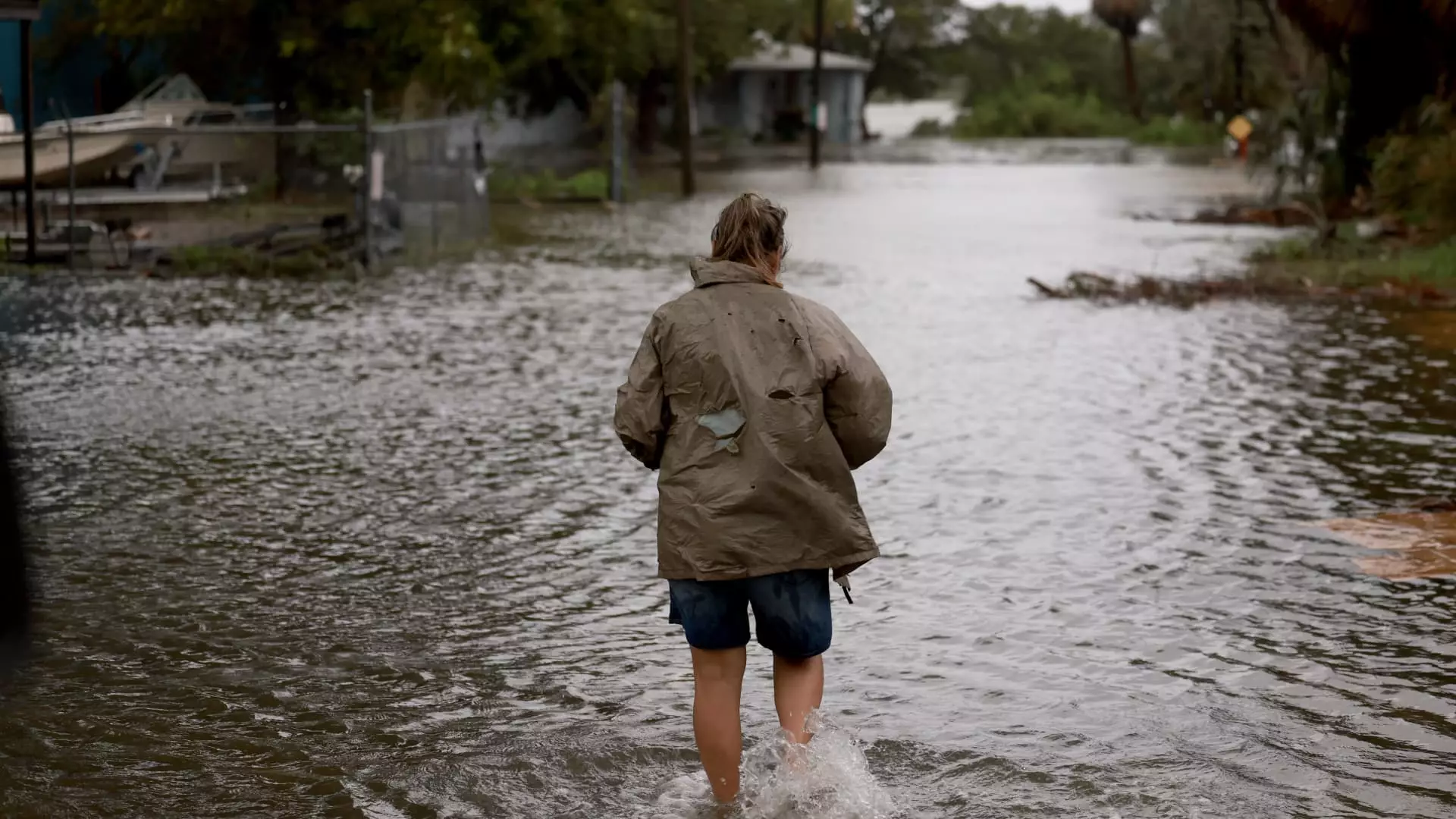The southeastern U.S. was hit with torrential rains and flash floods from Hurricane Debby, emphasizing the importance of flood insurance coverage for homeowners. While many may assume that flood insurance provides comprehensive coverage for all damage, it’s crucial to understand the limitations, particularly when it comes to basements.
Peter Kochenburger, an insurance expert, warns that flood insurance typically does not cover personal property and items stored in basements. This limitation can come as a surprise to policyholders who may have valuable belongings in their basement that are not protected in the event of a flood. The definition of a basement in insurance contracts can also be broader than expected, including areas partially below ground level, such as sunken living rooms.
The Impact of Climate Change on Flood Damage
Experts predict that storms and flooding will become more intense due to climate change, making it essential for homeowners to reassess their insurance coverage. Floods are responsible for 90% of annual disaster damage in the U.S., highlighting the need for adequate protection. With the threat of increased flooding, understanding the extent of coverage for basements becomes even more critical.
Most flood insurance policies are obtained through the federal government’s National Flood Insurance Program (NFIP), which covers structural damage caused by floods. However, coverage for items stored in basements is limited, excluding personal property, basement improvements, generators, and certain dehumidifiers. Policyholders must consider additional “contents coverage” for items like washers, dryers, air conditioners, and food freezers to ensure protection.
While NFIP policies offer basic coverage for basements, private insurers may provide more extensive property protection, depending on the policy. Don Griffin of the American Property Casualty Insurance Association suggests exploring private insurance options for broader coverage, especially for valuable items stored in basements. Private insurers may offer enhanced coverage beyond what is available through NFIP policies.
Reducing Risk and Enhancing Coverage
To mitigate the risk of damage to basement items, policyholders are advised to consider relocating valuables to higher ground or storage units. Taking proactive measures to protect personal property can help minimize losses in the event of a flood. FEMA recommends documenting equipment details in basements, such as furnaces, AC units, and appliances, to streamline the claims process and ensure compensation for damages.
FEMA has proposed updates to the NFIP program to improve basement coverage for policyholders and address the limitations of the current policy. The focus on structure and building coverage in NFIP policies highlights the need for homeowners to understand the extent of protection for their basement items. Policyholders should review their flood insurance policy to ensure they have a comprehensive list of covered items and expenses.
Understanding the limitations of basement coverage in flood insurance policies is crucial for homeowners. With the threat of increased flooding and climate change, assessing insurance coverage and considering additional protections for basement items is essential. By exploring private insurance options and taking proactive measures to reduce risk, homeowners can safeguard their valuable belongings and minimize losses in the event of a flood.

